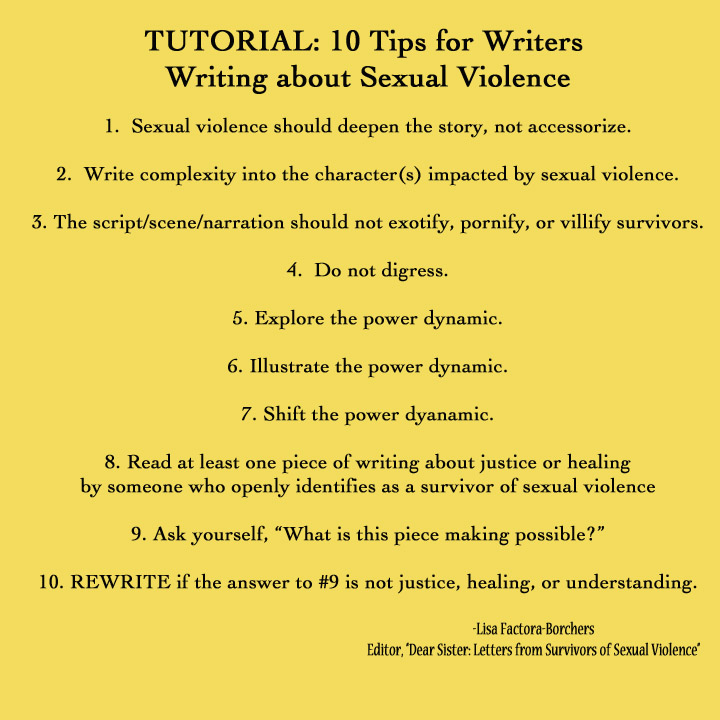Last night’s handling of sexual violence. Scandal writers “explaining” the history of Fitz and Mellie’s marriage, how Mellie came to be how she is now. The writers took us back 15 years ago and gives evidence of how Mellie came to be the kind of First Lady that she is.
There are many ways to interpret the script and delivery, but how I took it in and how I’m seeing the aftermath on social media is troubling.
First, there was no trigger warning whatsoever. I guess after so many years of editing the anthology about sexual violence, I knew it was coming. The scene opened with a drunk father in law, power obsessed, in a dimly fireplace lit den with a young, bright eyed “asset” of a wife, Mellie. My writing brain scans the scene in seconds. My first thoughts rushed forward to predict what was going to happen. Flash thoughts were:
1. Why is this scene going to be important? There are no mistakes in television. Every second counts toward the story line. Scandal doesn’t do subtle.
2. What would mainstream writers do to try and bring sympathy for a female shark character?
3. Why do I feel like something horrible is about to happen?
I was right. They wrote a rape scene into Scandal last night and it was terribly done.
The next morning when Mellie smiles and says she will never mention it again, she then wields the familial and political gavel from Jerry’s grip and the story moves onto her pregnancy.
As much as I suspected Mellie’s rape, it still bothered me, all the way up until I fell asleep. Eyes woke up this morning still troubled by the way it was handled. Perhaps it’s triggering for all of us – survivors and allies alike – to have visuals of rape so suddenly thrust into our homes. A violence so strangely normalized in media and yet so profoundly sickening when it echoes in our living room, a mere few feet from our sleeping children.
What has the narration of rape become? How is being so callously and nonchalantly written about, show in the beloved characters of stories that circulate every watercooler conversation the next morning, “Can you believe last night’s episode?” and thus unfolds more notions and missed opportunities to deconstruct the cultural problems that bolster sexual violence and rape.
Writers are responsible for their creative power. And just as we do do research in fields before we write details about the who what when and why — we should have standards that evoke sensitivity and tact when writing about this issue. Here is a brief guide for writers out in the world contemplating writing sexual violence into their story.
And for the love of all things holy, Scandal writers — USE TRIGGER WARNINGS.
